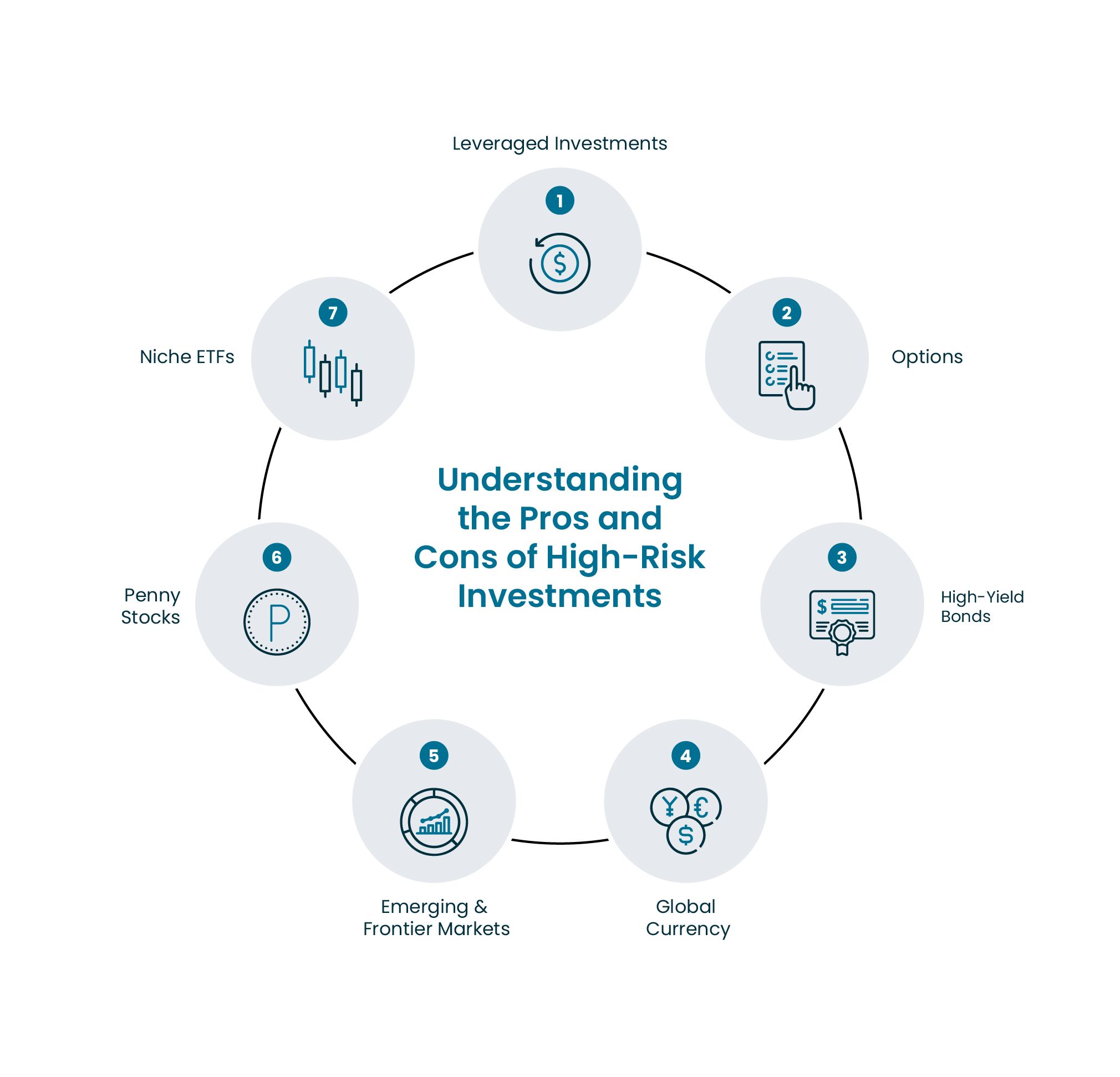Understanding the Pros and Cons of High-Risk Investments
A Look at Seven High-Risk Investment Options for the Investor with High-Risk Tolerance
There is no one right way to invest. Smart investing takes into consideration the individual and their personal preferences, and these preferences include things like risk tolerance and overall comfort as an investor. This is because there is a broad spectrum of investment options available, and some are inherently riskier than others. As the level of risk increases, so too do the possible gains – and the potential losses. While some level of risk is a natural part of investing, high-risk investments aren’t a good fit for most people. Still, if you have tolerance for it, you may be able to reap great rewards by adding them to your investment portfolio.
Below we’ll discuss the pros and cons of seven of the most popular high-risk investments.









